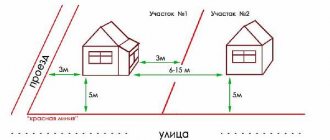In the verdict, the court is obliged to indicate reliable personal data of the convicted person, the qualifications of the crime, the event of the crime and the punishment imposed on the offender. Of enormous importance when deciding the type and amount of punishment is the personality of the perpetrator - his lifestyle, exemplary behavior before the crime or, conversely, outstanding criminal records. Everything is taken into account: availability of work, characteristics, dependent children and even pregnancy of the spouse, disability of a close relative, etc.
The judge, as it were, “sorts” the information that characterizes the person. Some of them are aggravating circumstances, others are mitigating; Moreover, both influence the assignment of punishment. In this article we will dwell in detail on the data resulting in a mitigation of punishment.
What circumstances mitigate punishment?
In accordance with Art. 61 of the Criminal Code of the Russian Federation, the court has the right to take into account any information that positively characterizes the perpetrator. This norm lists the main criteria in favor of the perpetrator, but their list is not exhaustive:
- the commission by a person of a crime for which no more than 5 years of imprisonment is provided, in a random coincidence. It should be noted that judges rarely use such wording in practice. This is explained by the fact that most crimes for which criminal liability is provided are classified as intentional, that is, committed not by accident. As for careless acts (for example, a fatal collision with a pedestrian), loyalty to such convicts is already taken into account in the sanctions of these articles of the Criminal Code, where the punishment is already comparatively milder. For these reasons, a combination of circumstances in rare cases is recognized as a basis for mitigating the situation of the convicted person.
- the perpetrator is under 18 years of age. Being a minor is an absolute basis for mitigating liability. According to some provisions of the criminal law, a teenager cannot be sentenced to more than 10 years, even for particularly serious crimes (for example, murder or terrorism). In addition, the lower limit of the sanction of any article for a minor is reduced by half. For example, if for robbery with entry into a home an adult defendant faces from 7 to 12 years in prison, then a minor faces from 3.5 to 10 years.
- the accused woman's pregnancy. With a supporting medical document, pregnancy, regardless of the duration, always entails a more lenient punishment.
- the accused has minor children. Defendants often use the opportunity to reduce their sentences by obtaining birth certificates that list them as the father. The court is obliged to find out whether the children are dependent on the perpetrator and whether he pays alimony in the event of a divorce. Children cannot be the basis for a preferential sentence if the accused is deprived of parental rights or the crime in question was directed against a child.
- committing a crime due to difficult life circumstances, as well as out of compassion for the victim. Judges take such grounds into account quite rarely, but still in judicial practice there are such examples - theft of food by a person in an extremely difficult financial situation due to hunger. Each situation is individual. For example, if a close relative is seriously ill, theft of illegal drugs from a pharmacy or hospital may be regarded as difficult life circumstances.
- the commission of a crime is the result of mental and physical pressure, including from management, from whom the person is professionally dependent. For example, when a superior, under threat of beating, forces a serviceman not to report the illegal use of a weapon; when the chairman of the medical commission puts pressure on the doctors included in the composition, etc. In such cases, the court may recognize such facts of influence on people as mitigating, provided that the perpetrators were forced to obey and could not do otherwise.
- criminal acts were the result of exceeding the necessary defense. It is well known that every person has the right to use self-defense against attack by others acting with obvious criminal intentions. At the same time, the law requires compliance with proportionality - this is an evaluative concept that takes on an individual meaning in each specific situation. If a person is hit with the palm of his hand, and in response he kills with a knife to the heart, the limits of necessary defense will be exceeded. Such circumstances mitigate guilt and punishment.
- provocation on the part of the victim. Cruel name-calling on a “sick” topic for a person (the death of loved ones, major failures in life) can prompt him to respond in an illegal way - to hit, damage property, etc. The culprit will be punished, but the provoking actions of another person will certainly soften his situation.
- confession. This is a voluntary admission of a person to have committed a criminal act and can be submitted either in writing or orally. It is important to understand that appearance results in a reduced sentence only under certain conditions. For example, an appearance may not be taken into account by the court if it is submitted when the person has already been brought to justice and evidence of guilt has been collected. Turning in reduces the penalty if a person makes a confession before the police solve the crime. You can read more about confession in our separate article.
- full compensation for harm to the victim, providing him with medical care immediately after the incident. Instead of compensation for moral and material damage in monetary terms, the law allows the adoption as a mitigating criterion of actions aimed at making amends for harm (medical care, assistance in everyday life and other matters).
As we have already written, the list presented is not exhaustive. The court has the right to take into account almost any circumstance that it considers mitigating (being dependent on sick parents, the state of health of the convicted person, positive characteristics and achievements in the field of science, sports, etc.).
The court does not issue a separate ruling recognizing one or another fact from the biography as mitigating. The taking into account of personal data must be indicated in the verdict or resolution, otherwise there will be grounds for canceling the court decision.
Sample maternal petition
A sample maternal petition to reduce the term implies a statement of the essence of the petition approximately as follows:
- In the header of the application is the full name of the institution to which the paper is sent, the full name of the mother and the full name and details of the convicted person in relation to whom the petition is being written. You should also indicate the period that the convicted person has already served and the date of the sentence.
- By or “Maternal petition to reduce the term.”
- In the body of the appeal, it is necessary to set out all the circumstances of the petition, the essence of the request and arguments that come in defense of the convicted person, characterize him as a person who has realized his guilt, repented, and so on.
- List of attached documents.
- Date and signature.
Petition for mitigation of punishment
Question: How does the judge find out that the defendant has children, a positive reference and other information?
Usually the investigator attaches all these documents to the case at the investigation stage. At the court hearing, the defense examines the case materials, including those characterizing the defendant, announcing the contents of each document. However, in some cases the need to include certain information arises only in court. In such situations, you need to file an appeal to the court.
A petition for mitigation of punishment may come from any participant in the process , including the defendant. For example, with the permission of the judge, at the initiative of the defense attorney, witnesses can be called into the courtroom who were not eyewitnesses to the incident, but can tell a lot about the culprit and characterize him positively. These same witnesses (for example, neighbors) can draw up and submit a written petition for leniency towards the defendant.
In certain cases, the victim can also ask for a mitigation of punishment . For example, in his testimony given to the court, he has the right to draw attention to the absence of claims against the culprit, has forgiven him and asks not to punish him strictly. Such a statement can be submitted either in writing or orally during testimony (then it will be recorded in the protocol). If the victim requests termination of the case for reconciliation, such a petition must be submitted only in writing.
You can read about the specifics of terminating a reconciliation case in our separate article.
Question: Can persons who are not participants in the process, that is, those people who were not questioned either during the investigation or in court (for example, colleagues or relatives of the convicted person, wife, etc.) apply for a reduced sentence?
Yes, it is quite. Such a petition can be submitted to the judge through the office:
To the Zheleznodorozhny District Court of Omsk
Emelyanova Maria Andreevna, born in 1950, living in Omsk, st. Green, 2
Petition from the mother of the defendant Emelyanov M.K.
The Zheleznodorozhny District Court of Omsk is considering a criminal case against my son Maxim Konstantinovich Emelyanov, born in 1975, accused of committing a crime under Part 3 of Art. 159 of the Criminal Code of the Russian Federation.
I ask you not to strictly punish M.K. Emelyanov, take into account that he admitted his guilt and is characterized positively. I am a disabled person of group 1, Emelyanov M.K. took care of me, helped around the house, responded to my every request - to go to the store, to the pharmacy, to take me to the hospital. Emelyanov is a respectable person, he stumbled once and committed a crime, for which he deeply repents.
Please take into account the provisions of Part 3 of Art. 60 of the Criminal Code of the Russian Federation that when assigning punishment, one should take into account not only the social danger of the crime and the personality of the perpetrator, but also the impact of the punishment on the living conditions of his family. If Emelyanov is appointed M.K. real imprisonment, he will not be able to pay off the remaining part of the material damage caused by the crime. In addition, he will not be able to provide me with moral and material support, take care of me, and I have no other relatives.
Based on the above, guided by Art. Art. 43, 60 of the Criminal Code of the Russian Federation,
ASK:
Show humanity and leniency towards M.K. Emelyanov, assign him a punishment that is not related to actual imprisonment.
Emelyanova M.A., 10/02/2021, signature.
Such a petition is written in free form, sent by mail to the court's address or submitted directly to the office. It must be authorized by the court, and in some cases the judge has the right to summon and interrogate the author of the petition.
There is no point in submitting such a statement at the stage of investigation to the police - the investigator does not have the right to impose punishment, this is the prerogative of the court only.
If there is a confession in the case, it is not necessary to submit a separate written petition to recognize it as a mitigating circumstance. This can be said in the debate, that is, in the final stage of the trial, preceding the last word and verdict.
The legislative framework
A mother’s petition for clemency, as well as other types of mitigation of punishment, are regulated by the following legal acts:
- Article 50,71 and 89 of the Constitution of the Russian Federation.
- Article 85 of the Criminal Code of the Russian Federation.
- Article 176 of the Criminal Executive Code of the Russian Federation.
- Regulations on the procedure for considering applications for pardon.
- Decree of the President of the Russian Federation “On commissions on pardons in the territories of constituent entities of the Russian Federation.”
In general, there are several types of pardon:
Have a question for a lawyer? Ask now, call and get a free consultation from leading lawyers in your city. We will answer your questions quickly and try to help with your specific case.
Telephone in Moscow and the Moscow region: +7
Phone in St. Petersburg and Leningrad region: +7
- Presidential.
- Maternal.
- Public.
- Personal.
It is the mother’s request that we will consider in more detail below.
Impact on the type and amount of punishment
Let's assume that there are several mitigating circumstances in relation to a person, plus there are petitions from different people for leniency. What kind of punishment will the court choose?
In such cases, the judge is required to apply Article 62 of the Criminal Code of the Russian Federation. According to this norm, the circumstances listed in Article 61 of the Criminal Code of the Russian Federation must be unconditionally taken into account by the court. In other words, the judge is obliged to “weigh” everything positive that concerns the personality of the defendant, and the crime itself that was committed by him. It is clear that the perpetrator of a brutal murder will not be given a suspended sentence due to excellent reviews from colleagues and good attitude towards children. Proportionality and reasonableness in assessing circumstances are the guidelines to which the Supreme Court of the Russian Federation draws the attention of the servants of Themis in its decisions.
Question: It turns out that there are no rules about how much punishment to assign to whom and how to take into account positive factors?
Yes, with the exception of several mitigating circumstances, the nature of which obliges the judge not to exceed 2/3 of the maximum punishment sanctioned by the article:
- confession;
- voluntary compensation for damage;
- active assistance in solving a crime, cooperation with the investigation;
- medical and other necessary assistance to the victim as a result of the crime.
Only these four circumstances (one of them or several at the same time) are the basis for imposing a sentence of no more than 2/3 of the maximum possible term.
Example No. 1 . Sokolov I.S. committed theft with entry into the premises, that is, paragraph “b” of Part 2 of Art. 158 of the Criminal Code of the Russian Federation (maximum punishment - up to 5 years in prison). He admitted guilt, wrote a confession during the investigation and compensated the victim for damages. The court considered it possible to assign Sokolov, taking into account mitigating circumstances, a sentence of imprisonment for a period of 2 years (it turns out that less than 2/3 of the maximum).
It should be noted that failure to comply with this rule and the imposition of a more severe punishment than 2/3 of the maximum entails the recognition of the sentence as illegal; in the appellate instance this is a 100% basis for canceling or changing the sentence with the imposition of a more lenient punishment.
An exception to the rule “no more than 2/3” is the presence of aggravating circumstances on the part of the convicted person (recidivism, committing a crime against a minor, being intoxicated at the time of the criminal act, etc.). If there is at least one aggravating criterion, the court has the right to assign more than 2/3.
Example No. 2 . Mironov K.E. committed robbery with the use of violence, that is, paragraph “g” of Part 2 of Art. 161 of the Criminal Code of the Russian Federation (maximum possible punishment - 7 years in prison). Mironov helped solve this crime and made amends for the harm caused. But this is not the only fact of criminal prosecution in his biography. Previously Mironov K.E. He had already been convicted of an intentional crime and was serving time in a colony for it. Since the court found signs of relapse (an aggravating factor) in Mironov’s actions, he was sentenced to 5 years in prison, that is, more than 2/3.
In recent years, the number of cases considered by courts under special proceedings (i.e., a shortened version of the examination of evidence in case of a full admission of guilt by the defendant) has been increasing. You can read more about this procedure in our article. In accordance with the Code of Criminal Procedure of the Russian Federation, a shortened version of the consideration of cases is possible for crimes for which no more than 10 years of imprisonment are provided. At the same time, the law guarantees a punishment not exceeding 2/3 of the maximum for a defendant who declares the case to be considered under such a procedure. If there is a confession or another circumstance entailing a mandatory mitigation of the sentence, the final term will be calculated according to the rule “2/3 of 2/3”.
Example No. 3 . Markov A.P. committed fraud under Part 3 of Art. 159 of the Criminal Code of the Russian Federation (maximum period of sanctions - 6 years). He wrote a confession to the investigator and declared a special procedure in court. Due to the fact that the case was considered in an abbreviated manner, it is necessary to count 2/3 of 6 years = 4 years (no more than this period can be assigned to Markov by the court due to the simplified procedure). Then, taking into account the confession, the court counted 2/3 of 4 years = 32 months, that is, 2 years 8 months (the final punishment with all benefits, the amount of which the court has no right to exceed). Markov was sentenced to 2 years and 6 months in prison.
Difference from amnesty
The two concepts - “amnesty” and “pardon” - have a number of distinctive features. The amnesty applies to persons who are selected based on general classification criteria. The decision to pardon is made exclusively in relation to a specific individual, that is, it is subjective.
The amnesty applies not only to persons against whom criminal proceedings have already been completed and a court decision has been made, but also to those against whom an investigation is still underway. Pardon is allowed only in cases where a court decision has already been made against the person.
After the request for pardon is granted, an act is issued, which is the basis for release from prison. If a person falls under the amnesty, then additional decisions and decisions are made and a certain procedural procedure is carried out.
Forced labor
Currently, mitigation of a sentence of imprisonment is possible by replacing it with so-called forced labor - a relatively new type of punishment, which is not yet widespread in Russia.
Forced labor is provided for in Article 53.1 of the Criminal Code of the Russian Federation and consists in the fact that the convicted person is sent to a special correctional center where he works (instead of imprisonment). At the same time, from his salary to the state income is withheld from 5 to 20%. In a certain sense, this type of punishment is similar to correctional labor, but the difference between forced labor is that the latter is served in isolation.
Currently, mitigation of punishment by forced labor is used extremely rarely by judges (for 2021 - in relation to just over 500 convicts). This is explained by the fact that in Russia so far only 8 correctional centers and 15 isolated places in colonies have been created and are functioning, where such training is possible.
Replacing imprisonment with forced labor can only apply to convicts who have been sentenced to a term of no more than 5 years.
Pardon concept
A pardon is a decision by the head of state to cancel a sentence or mitigate the punishment in relation to a specific convicted person. However, at the same time, it should be noted that such penalties as payment of material and moral compensation, or deprivation of awards, positions, or confiscation of property do not have retroactive effect. In fact, pardon is applied only in the context of releasing a convicted person before the deadline.
It goes without saying that the President is not able to consider every petition, therefore, before the paper comes to him for consideration, it must go through several authorities:
- The administration of the penitentiary institution in which the convicted person is serving his sentence.
- The Penitentiary Inspectorate, to which the above-mentioned penitentiary institution is subordinate.
- A special commission that considers appeals from citizens regarding the pardon of convicted persons.
- The head of the local administration, which will forward the appeal to the President.
And only after this the mother’s petition will be submitted to the President of the Russian Federation for consideration.
Classification
Pardons can be classified based on their consequences:
- the person is released from the assigned isolation and his term of imprisonment is terminated;
- the time spent in custody is reduced;
- a more lenient type of liability is applied to the guilty person;
- cancellation of a criminal record from a previous period.
Sometimes acts of pardon are distributed based on the subject initiating the application of this type of forgiveness:
- presidential;
- public;
- maternal;
- personal.
Other
Often, convicted citizens themselves or their defenders in the case apply for pardon, but sometimes the initiators are other persons.
Reference! In some cases, society, a specific community (a certain organization, including an informal one), wants to protect a guilty person when it learns about the excessively harsh punishment chosen by the court.
Here, in addition to the petition from the convicted person, you need to collect a certain package of documents to transfer it to the pardon commission. First of all, this is a petition for pardon issued by an organization or group of activists.
A question of practice
Before the institution of pardon was introduced on the territory of the Russian Federation, and this is 2001, the number of convicts who were released from penitentiary institutions ahead of the deadline for pardon was more than 8,000. It goes without saying that among them were criminals who were in prison colonies for serious offenses - murderers, repeat offenders, and so on.
From the moment the procedure became regulated, the number of pardoned convicts was reduced to a minimum. Thus, in 2014, a positive decision was made regarding only 4 petitions.
Release procedure
If the petition is granted, a copy of the decision is sent to the following authorities:
- The most condemned.
- To a penitentiary institution where a prisoner is serving his sentence.
- To the criminal inspection, which monitors the work of the above-mentioned penitentiary institution.
- To the administration of the city where the penitentiary institution is located.
Further, according to the internal regulations of the colony or prison, after completing all the necessary documents, the convict is released.
How to draw up and submit an application for parole?
- Most often, an application for parole is submitted to the judicial authorities through the governing bodies of the institution where the prisoner is serving his sentence. The law does not prohibit sending a petition directly to the court located in the area where the colony is located. In addition to the request to reduce the term of imprisonment, facts must be presented confirming the correction of the offender and his orientation towards compliance with current norms and procedures.
- The petition for parole of the convicted person is drawn up, drawn up and presented by our lawyer, who at the same time decides on the prospects of replacing the unserved part of the sentence, as another procedure in order to obtain the freedom of the convicted person.
- The application is submitted to the authority where the prisoner is serving his sentence. According to current laws, a representative of the administration must respond to a request for parole within fifteen days.
- To the main paper, the management of the penitentiary colony attaches its own characterization of the prisoner, where it informs the court authorities about the behavior, labor and disciplinary achievements of the ward.
In order to apply for parole and get a positive result, it is also advisable to provide documentary facts that confirm material or moral compensation for damages and losses. An important factor in early release from punishment is the attitude of the convicted person to his guilt, its awareness and sincere repentance also contributes to positive decision-making.
A sample application for parole can be obtained from the administrative office of the institution where the prisoner is serving his sentence, but always keep in mind that the individuality of your case may not coincide with the sample provided, which does not take into account the details. Some types of crimes (especially those committed on a sexual basis) require the opinion of a forensic psychiatric expert or a doctor under whose supervision the prisoner is being held.
Applying for parole through a lawyer
When contacting a lawyer, the procedure is significantly simplified, and if the lawyer is really very good, then he will achieve parole even for a person who is not distinguished by exemplary behavior, sincere repentance and zeal for work. The main thing here is an ideal and complete package of documents, connections and the ability to negotiate.
So, how can a lawyer help:
- draw up a correct petition on behalf of the convicted person;
- will communicate with the leadership of the colony (a good reference is needed, right?);
- will collect a “reinforced concrete” package of documents characterizing the convicted person from the positive side;
- obtain a certificate of employment and good characteristics;
- will persuade the victim to agree to parole;
- will represent the interests of the prisoner in court.
The last point, by the way, is completely optional, since usually everything is predetermined in advance. At the meeting, the lawyer’s competently collected package of documents works for him. The only exception is when some documents were obtained at the last moment, and they simply did not have time to be included in the case.
Then the presence of a lawyer at the meeting is desirable, but again not necessary.
Grounds for reducing the fine for a tax offense
By virtue of Art. 114 of the Tax Code of the Russian Federation, if the presence of mitigating circumstances is established in a tax offense case, the fine for its commission must be reduced by at least 2 times. The person involved can declare this by filing a petition to reduce the fine.
Mitigating circumstances are recognized by virtue of Art. 112 of the Tax Code of the Russian Federation:
- Committing a violation due to a combination of difficult circumstances (personal or family).
- Violation of the requirements of the Tax Code of the Russian Federation, if the violator was threatened or forced to commit an offense.
- If the violation is committed due to official or financial dependence on any person.
- Difficult financial situation of the offender.
In addition, one can refer to remorse for the violation committed, lack of intent to cause unlawful consequences, and full repayment of tax debt after the initiation of the case.








